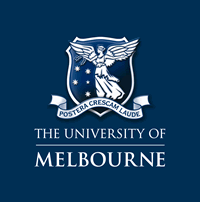Prof P Mancarella, Prof A Monti
No more applications being accepted
Funded PhD Project (Students Worldwide)
About the Project
Cities are responsible for 75% of energy consumption and 80% of greenhouse gas emissions worldwide. However, cities also exhibit substantial internal interactions among energy vectors and sectors with inherent flexibility and so are ideal candidates to harness flexibility to make the grid more reliable. However, integration of millions of small-scale distributed resources introduces enormous technical and commercial challenge.
The project will follow up on an ongoing DAAD project and will create a modelling framework, which will be demonstrated on specific Australian and German case studies, to:
Model and assess how new flexible, power electronics-interfaced distributed technologies in urban areas can be efficiently aggregated to provide system services.
Quantify how electrical flexibility could be extracted from interaction with and among multiple energy vectors.
Assess potential revenue streams from provision of multiple reliability services that could boost the business case for new resources.
The main methodological idea is to explore the link between techno-economic aspects, generating flexibility maps based on AC and multi-energy optimal power flow techniques (developed by UoM) and a grid dynamic model based on an innovative Dynamic Phasor Solver (developed by RWTH). This analysis will provide new insight between technical and market operation that cannot be understood with classical steady-state modelling. The new dynamics introduced by power electronics are requesting a deeper look at the time domain in the power system.
If successful, the PhD candidate will be enrolled at both the University of Melbourne and RWTH Aachen. The candidate will be co-supervised by supervisors at both institutions, will be based at the University of Melbourne and will spend at least twelve months at RWTH Aachen.
Funding Notes
The application process is competitive, and the applicant will need to meet the entry requirements of both institutions.
Information on the University of Melbourne entry requirements: https://study.unimelb.edu.au/how-to-apply/graduate-research/international-applications/entry-requirements.
Information about the Joint PhD Program between the University of Melbourne and RWTH Aachen: https://rum.research.unimelb.edu.au/
The candidate's scholarship will include a 100% fee remission scholarship, a living allowance for three years with a possible 6-month extension, and funding for travel.

 Continue with Facebook
Continue with Facebook

